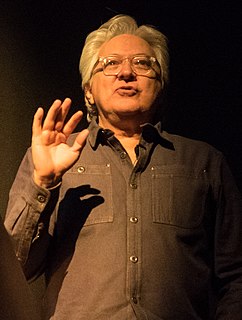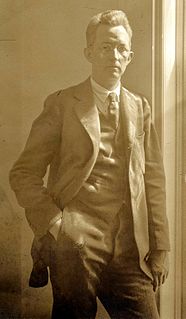A Quote by Vik Muniz
Now that photography is a digital medium, the ghost of painting is coming to haunt it: photography no longer retains a sense of truth. I think that's great, because it frees photography from factuality, the same way photography freed painting from factuality in the mid-nineteenth century.
Related Quotes
The invention of photography has dealt a mortal blow to the old modes of expression, in painting as well as in poetry, where automatic writing, which appeared at the end of the nineteenth century, is a true photography of thought. Since a blind instrument now assured artists of achieving the aim they had set themselves up to that time, they now aspired, not without recklessness, to break with the imitation of appearances.
Humans have changed the landscape so much, but images of the sea could be shared with primordial people. I just project my imagination on to the viewer, even the first human being. I think first and then imagine some scenes. Then I go out and look for them. Or I re-create these images with my camera. I love photography because photography is the most believable medium. Painting can lie, but photography never lies: that is what people used to believe.
I was always interested in drawing and painting. I enrolled in college to study painting. But I didn't have any livelihood when I graduated. My mother died very young, and I didn't have any home, so I had to find a way to earn a living. It seemed to me that photography - to the great disappointment, I have to say, of my painting teacher - could offer that. So I went and did a degree in photography, and then after that I could go out and get paid for work. For portraits, things like that.
The first half of the 20th century belongs to Picasso, and the second half is about photography. They said digital would kill photography because everyone can do it, but they said that about the box brownie in 1885 when it came out. It makes photography interesting because everyone thinks they can take a picture.
To know whether photography is or is not an art matters little. What is important is to distinguish between good and bad photography. By good is meant that photography which accepts all the limitations inherent in photographic technique and takes advantage of the possibilities and characteristics the medium offers. By bad photography is mean that which is done, one may say, with a kind of inferiority complex, with no appreciation of what photography itself offers: but on the contrary, recurring to all sorts of imitations.





































